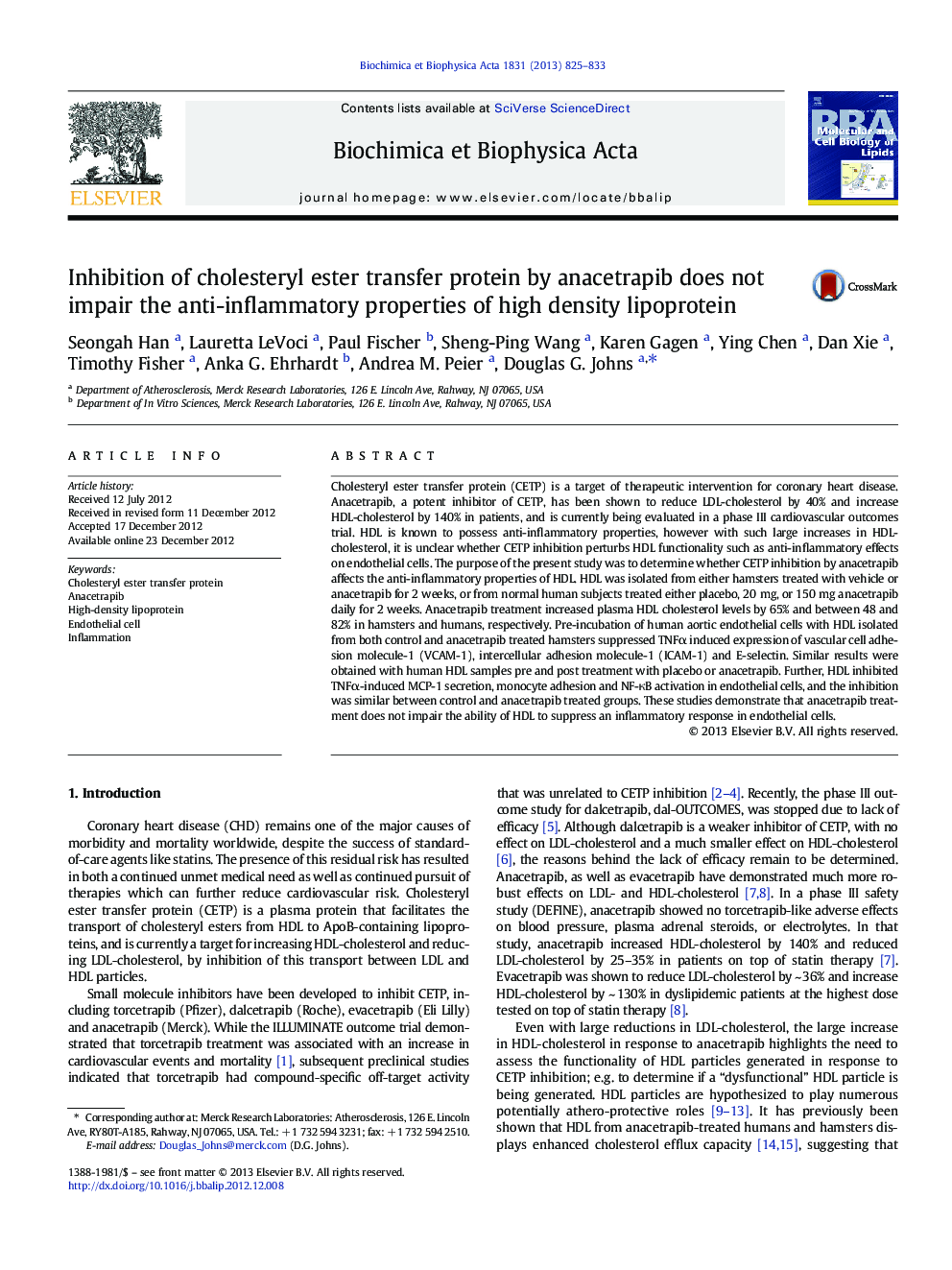| کد مقاله | کد نشریه | سال انتشار | مقاله انگلیسی | نسخه تمام متن |
|---|---|---|---|---|
| 1949256 | 1537743 | 2013 | 9 صفحه PDF | دانلود رایگان |

Cholesteryl ester transfer protein (CETP) is a target of therapeutic intervention for coronary heart disease. Anacetrapib, a potent inhibitor of CETP, has been shown to reduce LDL-cholesterol by 40% and increase HDL-cholesterol by 140% in patients, and is currently being evaluated in a phase III cardiovascular outcomes trial. HDL is known to possess anti-inflammatory properties, however with such large increases in HDL-cholesterol, it is unclear whether CETP inhibition perturbs HDL functionality such as anti-inflammatory effects on endothelial cells. The purpose of the present study was to determine whether CETP inhibition by anacetrapib affects the anti-inflammatory properties of HDL. HDL was isolated from either hamsters treated with vehicle or anacetrapib for 2 weeks, or from normal human subjects treated either placebo, 20 mg, or 150 mg anacetrapib daily for 2 weeks. Anacetrapib treatment increased plasma HDL cholesterol levels by 65% and between 48 and 82% in hamsters and humans, respectively. Pre-incubation of human aortic endothelial cells with HDL isolated from both control and anacetrapib treated hamsters suppressed TNFα induced expression of vascular cell adhesion molecule-1 (VCAM-1), intercellular adhesion molecule-1 (ICAM-1) and E-selectin. Similar results were obtained with human HDL samples pre and post treatment with placebo or anacetrapib. Further, HDL inhibited TNFα-induced MCP-1 secretion, monocyte adhesion and NF-κB activation in endothelial cells, and the inhibition was similar between control and anacetrapib treated groups. These studies demonstrate that anacetrapib treatment does not impair the ability of HDL to suppress an inflammatory response in endothelial cells.
► Until now, effects of CETP inhibition on anti-inflammatory properties of HDL were unknown.
► HDL from hamsters and humans suppressed inflammatory responses in endothelial cells.
► This effect was unchanged in HDL from anacetrapib-treated hamsters and humans.
► CETP inhibition by anacetrapib does not impair anti-inflammatory effects of HDL.
Journal: Biochimica et Biophysica Acta (BBA) - Molecular and Cell Biology of Lipids - Volume 1831, Issue 4, April 2013, Pages 825–833